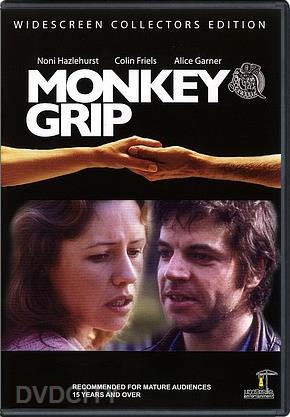
Garner disliked the casting of Colin Friels as Javo, telling The Age’s Peter Wilmoth in 2008, “I just can’t believe they cast Colin Friels as the junkie.
__MonkeyGrip(1).jpg)
Helen Garner co-wrote the film Monkey Grip, with director Ken Cameron. Garner says on the DVD commentary that she saw 14 or 15 drafts of the script, and then was there for the filming because Nora’s daughter, Gracie, is played by her own daughter, Alice, who is a sharp presence through the film, cheery and watchful, and possessed of slightly eerie wisdom.

On the indispensable website Ozmovies, where the Monkey Grip entry splices an interview with Cameron by Peter Malone and an account of Cameron’s DVD commentary into a narrative of how the screenplay was written, Cameron explains that he cut up and re-pasted the novel, typed it up “so that it resembled a movie”, then finessed the adaptation in constant conversation with Garner he has a collection of letters in which she suggests solutions and scenes. The film is based on Helen Garner’s 1977 novel, and Garner and Cameron are listed as co-writers.

Nora’s carefree nature, which can be cruel but is rarely nasty, lifts the viewer and carries them over the movie’s darkest parts, but there’s always the sense that something irrevocable is happening, a little bit past the line of sight, a little way out of control. This suspicion becomes unbearable as the film goes on. Maybe understanding the implications of what you’re doing has little to no bearing on whether or not it’s actually done? And then the inverse – you can be wise enough to know what’s happening to you and have it happen anyway. She supposes she’s done it again, and you may now grow aware of a disquieting question that is interesting to this movie the way a mouse is interesting to a cat. Resignation, pleasure, self-satisfaction, concern: it’s all there in the delivery, and it all takes a back seat to a wonderful feeling that it doesn’t matter much at all. “That would be good,” he tells her, and it’s on. Afterwards, she asks him if he’d like to stay the night. Soon, she’s taking him to an art show that she has to cover for the small, busy alternative paper for which she writes reviews. Nora learns from a mate that Javo likes heroin, though he seems to have kicked it the mate is the girlfriend of Nora’s housemate, and in the anything-goes manner of the time, Javo is soon hanging out with Nora and Martin, enough that Javo can ask Martin how “together” they really are, and relay Martin’s evasive response straight to Nora – a canny move for such a cruisy guy.

He looks like he’ll be trouble, but not the bad kind of trouble the kind it might be interesting to catch. He hangs back near the famous sign, AQUA PROFONDA, while Nora and the guy she’s seeing, Martin, do their thing. The woman’s name is Nora, and she’s getting out of the pool when she goes to look at the guy she’s seeing and sees something better: a sexy stranger, Javo, who radiates a type of bruisy depth.


 0 kommentar(er)
0 kommentar(er)
